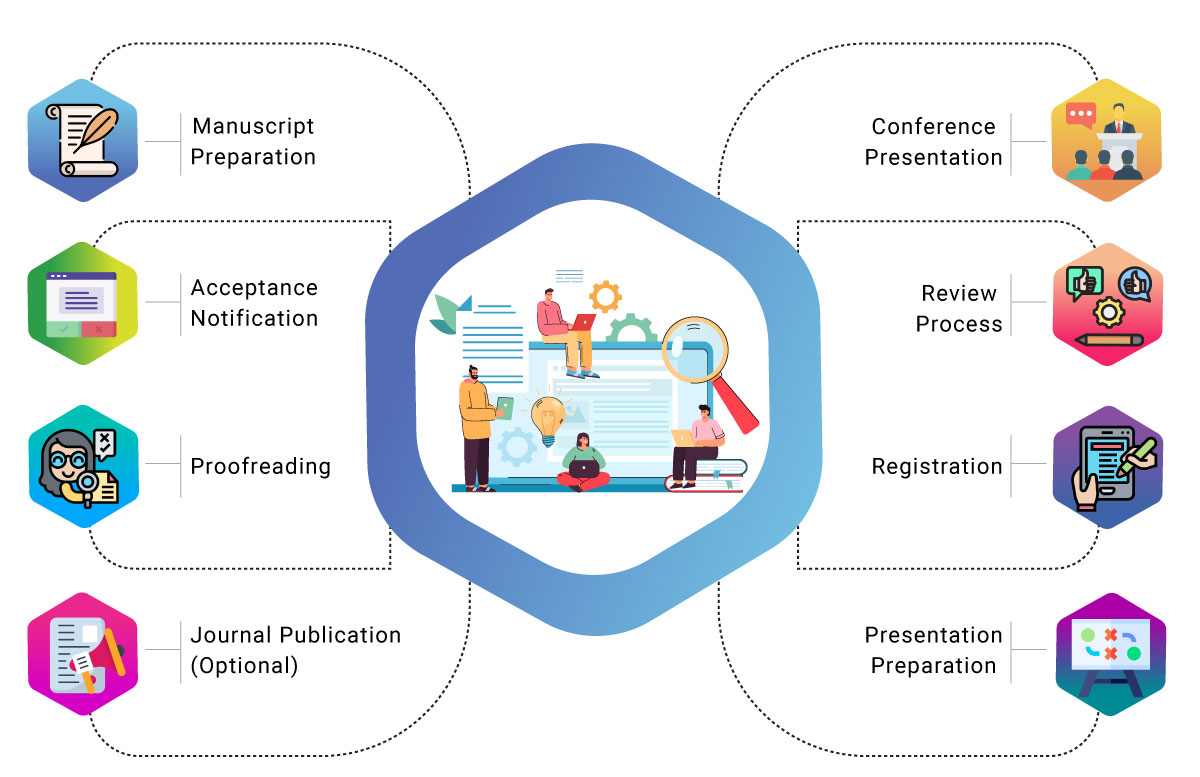Each submitted article goes through a rigorous peer review process involving multiple reviewers and experts in the field. We firmly believe that the peer-review publication process is an essential element of academia, and it must be maintained with the utmost integrity. Reviewers in the respective fields offer their insights and recommendations to enhance the quality of submissions.

Note : 3rd Cardio Metabolic Congress Proceeding series will be submitted to the Web of Science Book Citation Index (BKCI) and to Scopus for evaluation and Indexing (T&C)*

Indexing : Scopus

Indexing : Pubmed and Scopus

Manuscript Preparation :
Review Process :
Acceptance Notification :
Registration :
Proofreading :
Presentation Preparation :
Journal Publication (Optional) :
Conference Proceedings :
Conference Presentation :
Networking and Collaboration :

Ethics and publication practices are crucial aspects of the scholarly community to ensure the integrity, credibility, and reliability of research.Participants and authors are expected to adhere to ethical standards and avoid publication malpractices. Here is key principles
Authorship and Contributorship :
Plagiarism :
Data Integrity :
Informed Consent :
Conflict of Interest :
Research Ethics :
Multiple Submissions :
Authorship Manipulation :
Data Falsification and Fabrication :
Review Process Integrity :
Transparent Reporting :
Redundant Publication :
Retraction and Corrections :
Authors, reviewers, and conference organizers are encouraged to familiarize themselves with ethical guidelines and collaborate to maintain the highest standards of integrity in research and publication. Violation of ethical standards can have serious consequences for the individual researcher and the academic community as a whole.
Contact us to get the assistance in navigating your research publication process smoothly.